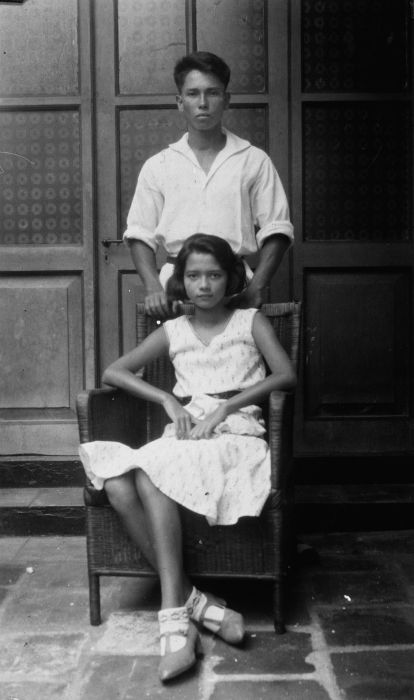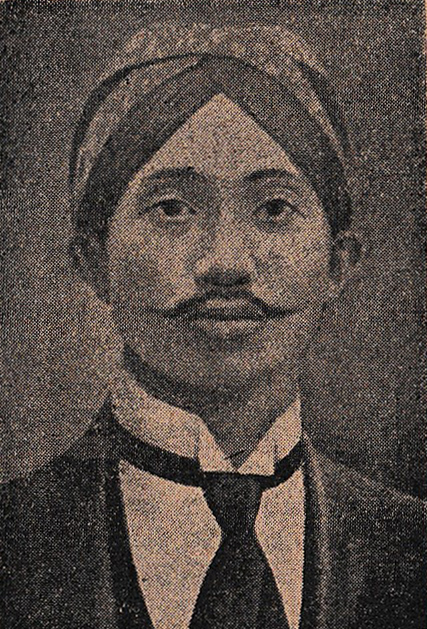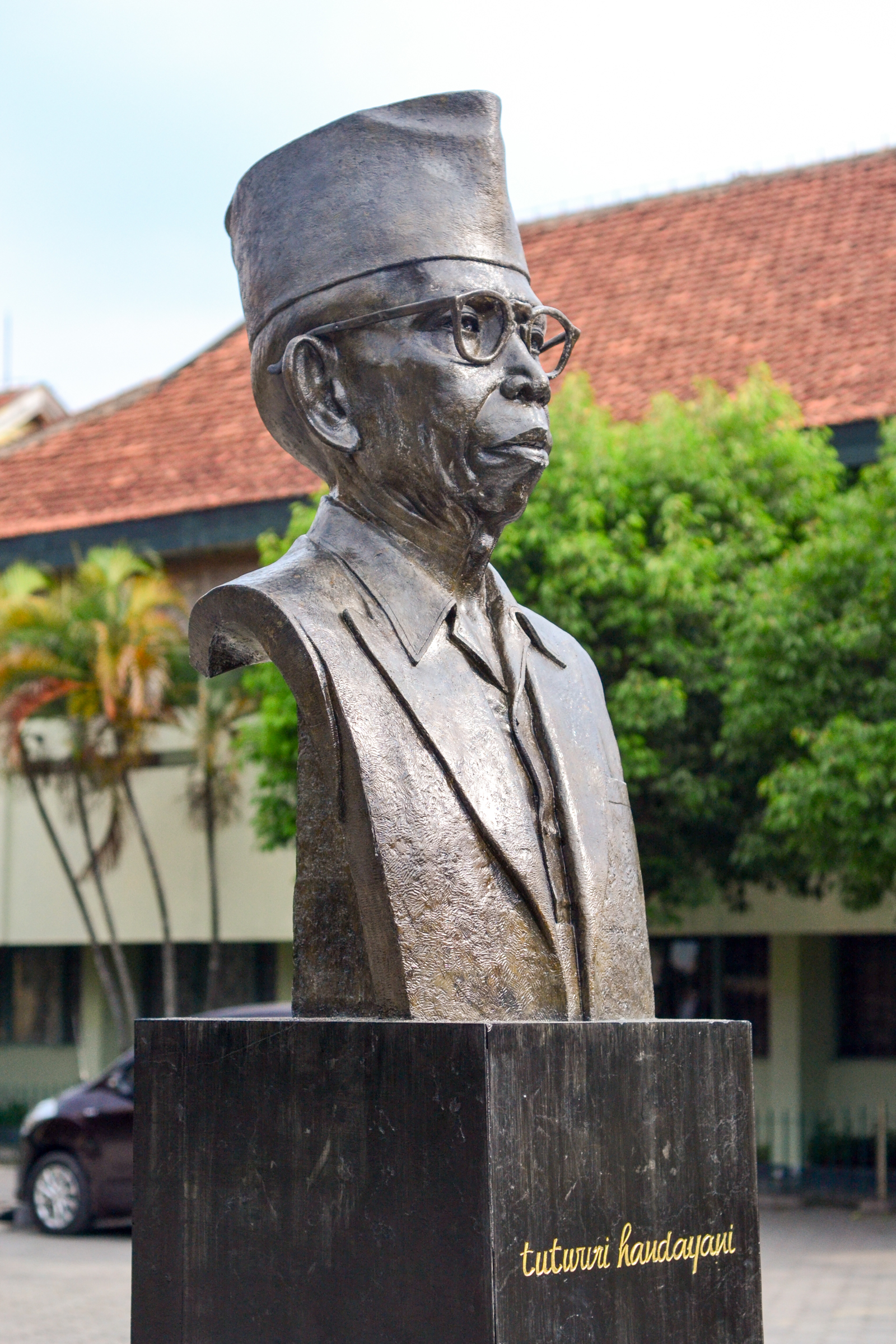|
Insulinde (political Party)
Insulinde (1907–1919), a direct successor of the ''Indische Party'' (IP) and later renamed the ''Nationale Indische Party'' (NIP), was a political organization that represented efforts by some Indo Eurasians to identify and cooperate with the Indigenous educated élite of the Dutch East Indies in an effort to establish an independent dominion. The organisation was mainly led by Indo-European and Javanese activists, but had a considerable membership in the South Moluccas. It was considered part of the more radical political wing in the colony, for which it faced much oppression from the colonial authorities. Foundation ''Insulinde'' was the direct successor of the Indische Party (IP), with a strong Indo-European (Eurasian) following and was based in Semarang. When the 3 founders of the IP ( E.F.E. Douwes Dekker, Tjipto Mangoenkoesoemo and Soewardi Soerjaningrat) were exiled to the Netherlands in 1913, the IP secretary became chairman of the newly established ‘’Insulinde’’. ... [...More Info...] [...Related Items...] OR: [Wikipedia] [Google] [Baidu] |
Indische Party
The Indische Partij (IP) or Indies Party was a short-lived but influential political organisation founded in 1912 by the Indo-European (Eurasian) journalist E.F.E. Douwes Dekker and the Javanese physicians Tjipto Mangoenkoesoemo and Soewardi Soerjaningrat. As one of the first political organisations pioneering Indonesian nationalism in the colonial Dutch East Indies it inspired several later organisations such as the ''Nationaal Indische Party'' (N.I.P.) or ''Sarekat Hindia'' in 1919 and Indo Europeesch Verbond (I.E.V.) in 1919. Its direct successor was Insulinde. Foundation Although short lived and accumulating a little over 7,000 members its influence as the first multi-racial political party that clearly stated the, at the time radical, notion of independence was far reaching. The IP’s aim was to unite all native peoples of the Indies in a struggle for an independent nation. When the IP was banned and its leadership exiled, members of the IP founded the equally radical I ... [...More Info...] [...Related Items...] OR: [Wikipedia] [Google] [Baidu] |
ISDV
The Communist Party of Indonesia (Indonesian: ''Partai Komunis Indonesia'', PKI) was a communist party in Indonesia during the mid-20th century. It was the largest non-ruling communist party in the world before its violent disbandment in 1965. The party had two million members in the 1955 elections, with 16 percent of the national vote and almost 30 percent of the vote in East Java. During most of the period immediately following independence until the eradication of the PKI in 1965, it was a legal party operating openly in the country. History Forerunners The Indies Social Democratic Association ( Dutch: ''Indische Sociaal-Democratische Vereeniging'', ISDV) was founded in 1914 by Dutch socialist Henk Sneevliet and another Indies socialist. The 85-member ISDV was a merger of the two Dutch socialist parties (the SDAP and the Socialist Party of the Netherlands), which would become the Communist Party of the Netherlands with Dutch East Indies leadership. The Dutch members of t ... [...More Info...] [...Related Items...] OR: [Wikipedia] [Google] [Baidu] |
Sukarno
Sukarno). (; born Koesno Sosrodihardjo, ; 6 June 1901 – 21 June 1970) was an Indonesian statesman, orator, revolutionary, and nationalist who was the first president of Indonesia, serving from 1945 to 1967. Sukarno was the leader of the Indonesian struggle for independence from the Dutch colonialists. He was a prominent leader of Indonesia's nationalist movement during the colonial period and spent over a decade under Dutch detention until released by the invading Japanese forces in World War II. Sukarno and his fellow nationalists collaborated to garner support for the Japanese war effort from the population, in exchange for Japanese aid in spreading nationalist ideas. Upon Japanese surrender, Sukarno and Mohammad Hatta declared Indonesian independence on 17 August 1945, and Sukarno was appointed president. He led the Indonesian resistance to Dutch re-colonisation efforts via diplomatic and military means until the Dutch recognition of Indonesian independence ... [...More Info...] [...Related Items...] OR: [Wikipedia] [Google] [Baidu] |
Karel Zaalberg
Frans Hendrik Karel Zaalberg (26 November 1873 – 13 February 1928) was an Indo (Eurasian) journalist and politician in the Dutch East Indies. He was born in Batavia, Java, Dutch East Indies, and also died there. He was the son of a Dutch father Pieter Jacobus Adrianus Zaalberg, Secretary at the Department of Education and Religious Affairs in the Dutch East Indies, and Indo (Eurasian) mother Susanna Elisabeth de Bie. He was married to Maria Taunay (born 1878) from 22 April 1899 up to her death in 1911. Both the Zaalberg and De Bie family were of Jewish descent. They had two sons and three daughters, one of whom died young. Karel Zaalberg was a self-taught and self-made man. With only primary school he became chief editor of one of the biggest newspapers. Education for the Indo-Europeans of the Dutch East Indies would be his life's personal and political ambition. As a journalist he became a spokesman for the Indo-European (Eurasian) community. He was director of the first orga ... [...More Info...] [...Related Items...] OR: [Wikipedia] [Google] [Baidu] |
Indo Europeesch Verbond
The Indo Europeesch Verbond (IEV) or Indo European Alliance was a social movement and political organisation founded in 1919 by the Indo-European (Eurasian) community of the Dutch East Indies that fought for race equality and political say in late colonial Indonesia during the early 20th century. It was one of the first and largest European organisations in the Dutch East Indies that formulated a desire for an independent nation albeit in relation with a Dutch dominion and supported the Soetardjo Petition of 1936 that aimed for an independent status within a Dutch commonwealth.Willems, Wim ''Sporen van een Indisch verleden (1600-1942), Part II by van Hoogevest, W.M.'' (COMT, Leiden, 1994) P.81,84 Its vision was to retain an important position for the Indo European (Eurasian) segment of Indonesian society after obtaining independence from the Netherlands. Founding father of this organisation was Karel Zaalberg chief editor of one of the country's largest newspapers (Bataviaasc ... [...More Info...] [...Related Items...] OR: [Wikipedia] [Google] [Baidu] |
Sarekat Islam
Sarekat Islam or Syarikat Islam ( 'Islamic Association' or 'Islamic Union'; SI) was an Indonesian socio-political organization founded at the beginning of the 20th Century during the Dutch colonial era. Initially, SI served as a cooperative of Muslim Javanese batik traders to compete with the Chinese-Indonesian big traders. From there, SI rapidly evolved into a nationalist political organization that demanded self-governance against the Dutch colonial regime and gained wide popular support. SI was especially active during the 1910s and the early 1920s. By 1916, it claimed 80 branches with a total membership of around 350,000. SI was eventually embroiled in an internal conflict between the Islamic moderates and the radical communist members who urged firmer anti-colonialist and anti-capitalist actions. In 1921, the organization was split and communist members founded a separate entity known as the Sarekat Islam Merah (Red Islamic Association) which was absorbed into the Communi ... [...More Info...] [...Related Items...] OR: [Wikipedia] [Google] [Baidu] |
Budi Utomo
, native_name_lang = , logo = , logo_size = , logo_alt = , logo_caption = , image = , image_size = , alt = , caption = , map = , map_size = , map_alt = , map_caption = , map2 = , map2_size = , map2_alt = , map2_caption = , abbreviation = , nickname = , pronounce = , pronounce ref = , pronounce comment = , pronounce 2 = , named_after = , predecessor = , merged = , successor = , formation = 20 May 1908 , founder = , founding_location = , dissolved = 1935 , merger = , type = Nationalist organization , tax_id = , registration_id = , status = , purpose ... [...More Info...] [...Related Items...] OR: [Wikipedia] [Google] [Baidu] |
Volksraad (Dutch East Indies)
The ''Volksraad'' (People's Council) an advisory, and later semi-legislative institution for the Dutch East Indies, was provided for by law in 1916 but was only established with the actual installation of the Council in 1918. It was a hesitant and slow attempt at democratisation of the Dutch East Indies as part of the "ethical policy" adopted by the Dutch government. The power of the ''Volksraad'' was limited as it only had advisory powers. Although part of the council was elected only a small proportion of the population had voting rights. Initially the ''Volksraad'' had 39 members, eventually rising to 60. It was reconstituted every four years. The members were partly elected, partly appointed by the colonial administration. Background The idea of a representative body in the Dutch East Indies arose partly became of the Ethical Policy implemented by the Dutch government as part of a move away from simple exploration of the colony towards expressing concern for the Indonesian p ... [...More Info...] [...Related Items...] OR: [Wikipedia] [Google] [Baidu] |
Henk Sneevliet
Hendricus Josephus Franciscus Marie (Henk) Sneevliet, known as Henk Sneevliet or by the ''pseudonym'' "Maring" (1883 - 1942), was a Dutch Communism, Communist, who was active in both the Netherlands and the Dutch East Indies. As a functionary of the Communist International, Sneevliet guided the formation of both the Communist Party of Indonesia in 1914, and the Chinese Communist Party in 1921. In his native country, he was the founder, chairman and only House of Representatives (Netherlands), Representative for the Revolutionary Socialist Party (Netherlands), Revolutionary Socialist (Workers') Party, RSP/RSAP. He took part in the Communist resistance against the Nazi occupation of the Netherlands during World War II, for which he was executed by the Germans in April 1942. Biography Early life Hendricus "Henk" Sneevliet was born on 13 May 1883 in Rotterdam, Netherlands and grew up in 's-Hertogenbosch, Den Bosch. He was the son of Anthonie Sneevliet, a cigar, cigar maker, and the f ... [...More Info...] [...Related Items...] OR: [Wikipedia] [Google] [Baidu] |
Indo People
The Indo people ( nl, Indische Nederlanders, or Indos) are Eurasian people living in or connected with Indonesia. In its narrowest sense, the term refers to people in the former Dutch East Indies who held European legal status but were of mixed Dutch and indigenous Indonesian descent as well as their descendants today. In the broadest sense, an Indo is anyone of mixed European and Indonesian descent. Indos are associated with colonial culture of the former Dutch East Indies, a Dutch colony in Southeast Asia and a predecessor to modern Indonesia after its proclamation of independence shortly after World War II. The term was used to describe people acknowledged to be of mixed Dutch and Indonesian descent, or it was a term used in the Dutch East Indies to apply to Europeans who had partial Asian ancestry. "Indos–people of Dutch descent who stayed in the new republic Indonesia after it gained independence, or who emigrated to Indonesia after 1949–are called 'Dutch-Indones ... [...More Info...] [...Related Items...] OR: [Wikipedia] [Google] [Baidu] |
Marco Kartodikromo
Marco Kartodikromo (1890 – 18 March 1932), also known by his pen name Mas Marco, was an Indonesian journalist and writer. Born to a low-ranking ''priyayi'' (noble) family in Blora, Dutch East Indies, Kartodikromo's first employment was with the national railway. Disgusted by the racism shown there, in 1911 he moved to Bandung and found work as a journalist for '' Medan Prijaji''. The following year he moved to Surakarta and worked with two publications, ''Saro Tomo'' and ''Doenia Bergerak''; he soon began to write pieces critical against the Dutch colonial government, which led to his arrest. After a period as a correspondent in the Netherlands, Kartodikromo continued his journalism and critique of the government; he also wrote several pieces of fiction. Involved with the Communist Party of Indonesia, after a 1926 communist-led revolt Kartodikromo was exiled to Boven-Digoel prison camp in Papua. He died in the camp of malaria in 1932. Kartodikromo, who preferred wr ... [...More Info...] [...Related Items...] OR: [Wikipedia] [Google] [Baidu] |
Ki Hajar Dewantara
Raden Mas Soewardi Soerjaningrat ( EYD: Suwardi Suryaningrat); from 1922 also known as Ki Hadjar Dewantara (EYD: Ki Hajar Dewantara), which is also written as Ki Hajar Dewantoro to reflect its Javanese sounds (2 May 1889 in Pakualaman – 26 April 1959 in Yogyakarta), was a leading Indonesian independence movement activist, writer, columnist, politician, and pioneer of education for native Indonesians in Dutch colonial times. He founded the Taman Siswa school, an institution that provided education for indigenous commoners, which otherwise was limited to the Javanese aristocracy and the Dutch colonials. He was honored as a National Hero of Indonesia by Indonesia's first president, Sukarno, on November 28, 1959. Early life Soewardi was born into Javanese aristocracy, his family belonged to the royal house of Pakualaman. He was one of Prince Paku Alam III's grandsons through his father, GPH Soerjaningrat. Thanks to his family's ''priyayi'' (Javanese nobility) background, he ... [...More Info...] [...Related Items...] OR: [Wikipedia] [Google] [Baidu] |
%2C_20_Mei_Pelopor_17_Agustus%2C_p11.jpg)





